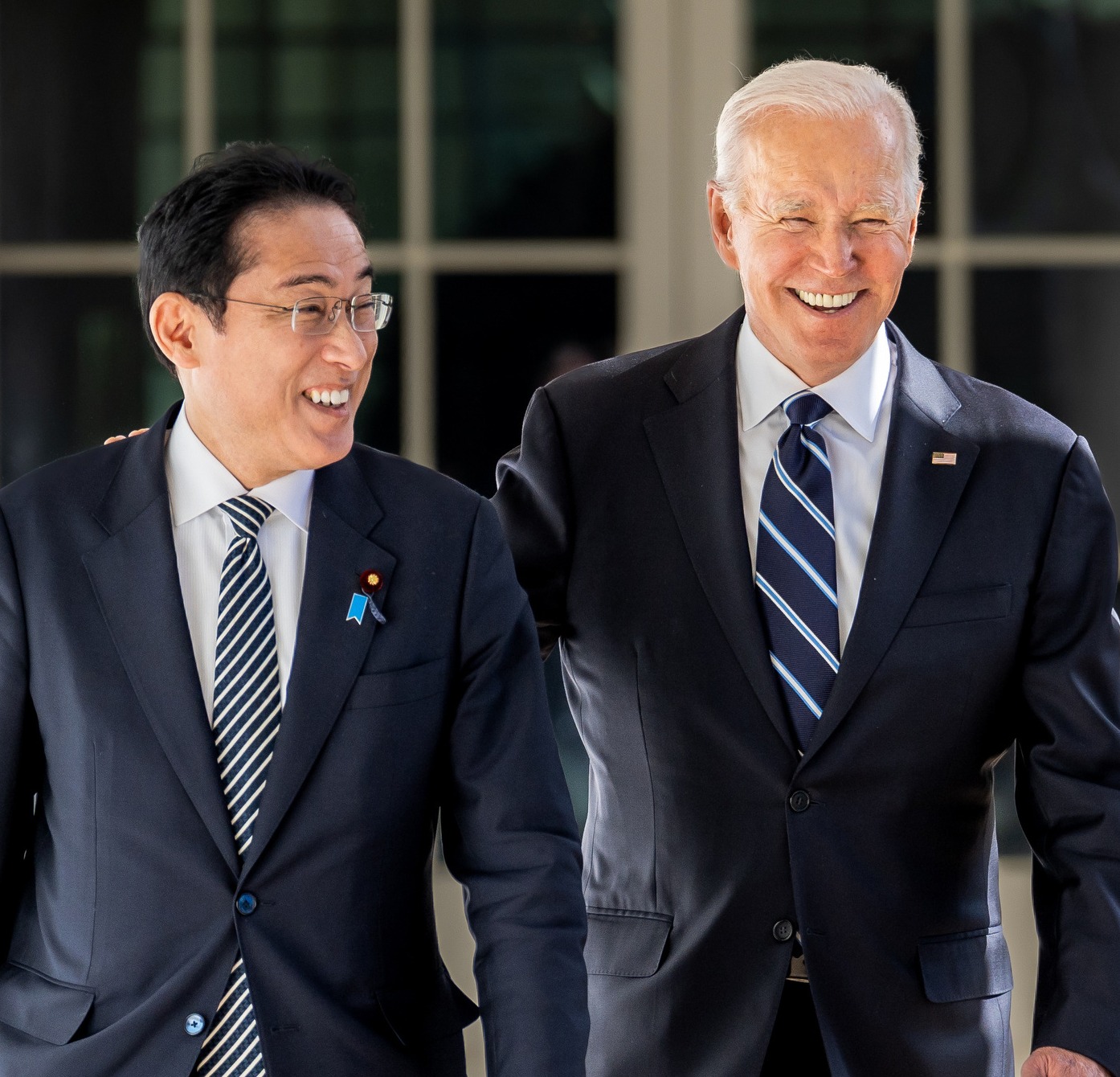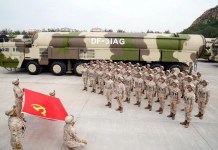An imperialist Japan in World War II had brought the world to its knees. Since then, Japan eschewed aggressive defense posturing.
However, as China’s unnerving growth is threatening peace in the South Pacific, Japan, in its biggest maneuver since World War II, is bringing 14 strategic island countries in the region together in an attempt to have collective security.
Japan has invited the defense ministers of 14 island nations in the South Pacific region to Tokyo for a multilateral meeting with Defense Minister Minory Kihara on March 19 and 20.
The move is also aimed at countering China’s dealmaking with these smaller but strategically important countries. This is the first in-person meeting between these countries.
During these talks, Japan is expected to offer Japanese Self Defense Forces and police imparting training to the forces of these island countries. This is a marked departure from Japan’s pacifist policies post World War II.
The last one was held virtually in 2021 during the COVID-19 pandemic. During this meeting, a joint statement was issued that included Japan’s diplomatic policy of a Free and Open Indo-Pacific (FOIP) with China’s aggressive maritime expansion going on.
China has entrenched itself well among these countries, where it is doling out aid instead of them dropping their diplomatic recognition to Taiwan. Most recently, Beijing succeeded in persuading Nauru, a small island country in the Pacific, to change its policy.
Japan has been finding it difficult to put its foot through the door. The countries with their militaries – like Fiji and Papua New Guinea, will be represented by their defense ministries.
Countries without militaries will send representatives of their police forces and coast guards. Countries like the US, Australia, New Zealand, and others will also attend as observers.
The meeting is expected to reiterate Japan’s commitment to cooperating with these countries on issues such as maritime security, climate change, and humanitarian disaster response. No joint statement is expected from this meeting, which is expected to be on the agenda for the Pacific Islands Leaders Meeting scheduled to be held in July.
Security and police agreements are expected to be inked at the 10th Pacific Islands Leaders Meeting (PALM10) in July.
Japan has also been providing “offer-based” financial development aid to the South Pacific countries. Tokyo is not waiting for the countries to ask for aid; rather, it is making a policy pivot and using foreign aid as one of its “most important diplomatic tools,” which would keep the Indo-Pacific “Free and Open,” Japan’s Foreign Minister Yoko Kamikawa announced on March 12.
Tokyo is also cooperating with the Pacific countries to support the strengthening of maritime law enforcement capability against illegal, unreported, and unregulated fishing in their exclusive economic zones and transnational crimes like illicit drugs.
Under Japan’s Official Security Assistance (OSA) framework launched in 2023, which aims to help developing nations strengthen their security, Fiji was listed as a priority country.
In December 2023, Japan agreed to provide Fiji with US$2.7 million in security assistance, including patrol boats. Tokyo was likely to use a mix of OSA and overseas development help to strengthen the capacities of regional countries in the future.
China’s Menace Of Illegal, Unreported, Unregulated (IUU) Fishing
China’s Pacific fishing fleet has expanded exponentially, registering a growth of 500 percent since 2012, and is now threatening the economic interests of the countries in the South Pacific. The Pacific Ocean is one of the world’s most fertile fishing grounds and supplies over half of the world’s tuna.
Seafood products are one of the key sources of revenue generation for South Pacific countries. For instance, Papua New Guinea generates US $470 million, Fiji’s revenue is US $182 million, and the Solomon Islands makes US $101 million.
Along with this, the Pacific countries have collectively negotiated access to their waters by foreign fishing vessels through the Parties to the Nauru Agreement, which results in an additional US $500 million in annual revenue.
Despite this, IUU poses a dire threat to the countries. Up to one in every five wild-caught fish in the Pacific is illegally caught. IUU fishing undermines regional food security and depletes fish stocks. Small Pacific states cannot fully police their waters, making them vulnerable to illegal fishing.
China is the most cited IUU fisher in the Pacific. Its massive, subsidized distant-water fishing fleet intimidates neighboring claimants in disputed waters, including the South China Sea.
“Chinese fishing vessels have become a militia in their own right. They infringe on other countries’ EEZ, hurting their economic interests. It is a big menace,” Captain DK Sharma (retired), former spokesperson of the Indian Navy, said.
Vying For Influence In The South Pacific
Like Japan, the US and Australia want to contain China’s influence in the region and keep the sea routes free and open, which will be a herculean task.
China’s influence in the South Pacific has been on the rise based on increased aid, development, diplomacy, and security cooperation. In 2022, Beijing signed a security pact with the Solomon Islands, sparking concerns about the first Chinese military base in the region.

In response, the US has accelerated its Pacific diplomacy and hosted a landmark Pacific leaders’ summit. On March 11, after a long impasse, the US Congress cleared the US $7.1 billion aid for the northern Pacific Islands of Palau, the Federated States of Micronesia, and the Marshall Islands as part of a long-standing funding deal called the Compacts of Free Association (Cofa).
The COFA funding will help the US military gain exclusive access to a vast sea between the Philippines and Hawaii, where it will be able to locate its missile and military facilities.
Australia has also been conducting diplomatic efforts to secure its interests in the region.
Fiji, Papua New Guinea, and Tonga already have their defense forces, with cooperation agreements with Australia, New Zealand, and the United States.
China’s financing of development activities in the region has decreased since 2016; however, it continues to focus on security cooperation and commercial activities.
Some Pacific leaders have expressed concerns about the implications of China’s involvement, including potential control over fisheries and communications infrastructure. At the same time, the countries are also wary of the unspoken drivers of Japanese engagement, with balancing Chinese power being the foremost.
- Ritu Sharma has been a journalist for over a decade, writing on defense, foreign affairs, and nuclear technology.
- The author can be reached at ritu.sharma (at) mail.com
- Follow EurAsian Times on Google News




